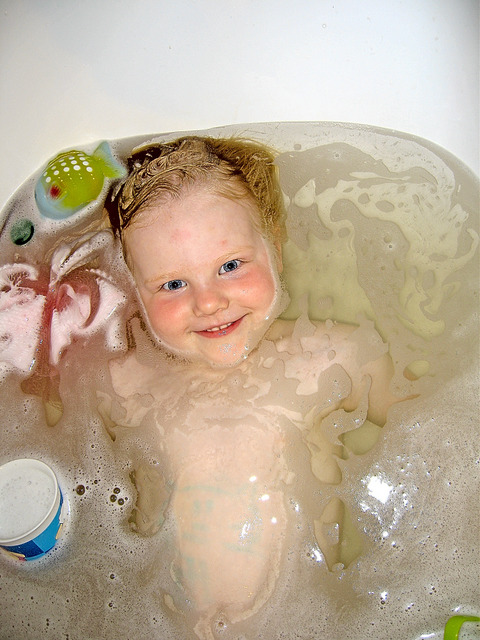Since this is my first post, I thought I would use a piece I wrote when my son, Matteo was just a couple of months old. It was written late one night, when I realized just how I had gotten to believe and feel as strongly as I did about my parenting ideals. My journey towards the attachment parenting spectrum started long before I started I had my son, Matteo.
So here is my story:
I was 17, I didn’t know better. I didn’t know the joy of motherhood, I didn’t know the blessing that having a child was. I did know that my little *Simon needed a better Mom, a better home, a better life. I knew I couldn’t give this to him at the ripe age of 17. I knew that he was bigger than me in so many ways, so I had to let him go. I’ve never regretted that choice. I know to this day that I did the best thing for my little boy. I gave him physical life, and I gave him his life; a life that he deserved, and one that I knew I couldn’t give to him. For him, I became a birthmother.
Now, I’m a mother again. This time, a different kind. The real kind. The kind that wakes up in the middle of the night. The kind that worries non-stop, the kind that claps in joy at the silliest things that her son does. I am a mother. Matteo is my pride and joy, I love him fiercely, with a love I never thought could possibly exist. His existence has opened new horizons, new feelings, new thoughts, and a new life for me. While he is learning so much from this big world, in the short time he has been here, he has taught me more about myself then I have been able to learn in my entire life thus far.
I love both my boys, but my love is so different for each of them. Simon shaped me for the mother I would one day be, and because of the selfless love I had for him, he’s made me a better mother for Matteo. Simon taught me how precious a child is and how beautiful it is to be a mother and watch your child grow. Without him, I would have never learned how much you can miss when you aren’t there.
I’ve contemplated my parenting choices. Everywhere I look people are trying to train their children into their schedule, mould them into the beings they want them to be. I’m not saying this is a bad thing; it’s what feels natural for some parents. However, what’s natural for me is so different. I’m learning every day the things I missed with Simon, and because I know I missed them with him, I’m soaking every small, extraordinary moment up with Matteo. If he wants to stay up all night, I’ll let him. If he wants me to stick out my tongue over and over again, just so he can smile at me, I’ll do it. If he wants to nurse for hours on end, I’ll let him. All of this, because I didn’t get to do it with Simon. I want Matteo to be what he wants, because I want to watch him, I want to see what sort of amazing being I created without trying to make him into the baby he isn’t. I want to soak up every single moment, because I know I’ll never get it back.
At night, when Matteo is wide awake, when my eyes are heavy with sleep, I turn on some country music, and we two-step around the apartment. I sing to him, I snuggle him closer. His eyes flit about excitedly, taking in every color, every picture, every shadow, like he’s never seen it before. Every so often, he’ll put his soft little head on my shoulder, and snuggle into my neck. Within seconds, his head is bobbing up again, trying to remember where he last looked, before he took the time to show me that he felt safe. He’ll be crying, and the moment we start dancing, he stops. Matteo usually looks at me with wonder for a second, and then turns his attention to the objects in the room. We dance for hours at a time, until my arms get tired, until he needs fed, until he’s sleeping, whatever. We just dance, and it’s my favourite time of the day. He’s the best dance partner I’ve ever had, and I sure wouldn’t trade those late night dances for even a bit of sleep.
People talk about all the things that are awful about parenthood- no sleep, lack of a social life, not showering, having no time. The list goes on. What they don’t realize is that when you didn’t get to have that, when you didn’t get to experience those things, they are things you want to have. I didn’t get to see Simon’s first bath, or first smile. I didn’t get to see him cry real tears, or say his first word. I didn’t get stay up all night and rock him to sleep. The thought of all the things I missed with Simon haunted me for years, and even to this day, I sometimes wish I got to sample a bit of his life in real-time. Yet, because of this, I’m embracing all of the imperfections of parenthood. I want the late nights, I want the lack of a social life, I want all of the things that come with parenthood. I want to experience the terrible, the good, the amazing, the awful, all of it. I’m amazed by the simple beauty of all of these experiences, even the tiresome ones.
There are no words, no amount of ‘thank-you’s that will be enough for Simon. I always thought if I ever saw him again, he would thank me for giving him his beautiful family. I never imagined that I would want to hug him tight, and thank him for teaching me how to be a better mom, a more attentive mother, a mother who appreciates the beauty in things that others might miss. A mother who will be happy to learn from her child, who will want to soak up every moment with her child, and will go to all lengths to make sure that her little one is happy, comfortable, loved, and protected.
*Names have been changed for privacy reasons
 I’m an adoptive father. I knew my life experience was different from my daughter, Casey’s, adopted from Poland more than 20 years ago, but I had no idea how profoundly different we were until I was compelled by tragedy to take a brutally hard look at the world of the adopted child.
I’m an adoptive father. I knew my life experience was different from my daughter, Casey’s, adopted from Poland more than 20 years ago, but I had no idea how profoundly different we were until I was compelled by tragedy to take a brutally hard look at the world of the adopted child.
 The Fall 2012 issue of
The Fall 2012 issue of 